
 Flash News
Flash News
Tragic in Italy: 14-year-old Albanian girl jumps from window, dies in hospital
Kosovo opens embassy in Malaysia
At first he ridiculed them as 'flying carpets' and then he adopted them/ 7 themes and promises that Edi Rama copied from Sali Berisha in this campaign
Edi Rama's return to the (losing) 2011 campaign
The US withdraws from peace negotiations between Ukraine and Russia.

Since June 2022, the European Union has granted Ukraine full trade liberalization to help the country's war-torn economy. These measures – the suspension of import tariffs and quotas – are known as Autonomous Trade Measures (ATMs), and appear to have brought benefits to Kiev.
In 2024, Ukrainian exports to the EU reached almost 60 percent of total exports, compared to 39.1 percent in 2021. However, the ATMs, which are renewed on an annual basis by a majority vote of EU member states, are set to expire on June 5. They were always intended as temporary measures and could only be extended twice.
Negotiations are currently underway between Brussels and Kiev to determine what will replace these measures. The fallback option is to return to the EU-Ukraine Association Agreement, which entered into force in 2017 (and has been provisionally applied since 2016), and includes a free trade component.
Current talks are focused on Article 29 of this agreement, which provides a framework for the possibility of mutual liberalization of customs tariffs.
Opposition from neighboring countries
But the process is far from over, as time is running out and the effects of the trade measures have not been welcomed by the entire bloc.
Farmers in the EU's so-called frontline border states, such as Poland, Slovakia, Hungary, Romania and Bulgaria, have long been pressuring their governments to lift these measures. They argue that agricultural goods from Ukraine have overwhelmed local storage capacities and driven down prices for local food producers.
On several occasions in 2023 and 2024, these farmers blocked the borders with Ukraine to prevent goods from entering the EU. In response, the European Commission – which oversees EU trade policies – tried several solutions, including redirecting agricultural shipments from Ukraine, diverting them from bordering countries, sending them to other destinations in the EU or to export ports beyond the bloc.
In the end, the EC agreed to restrict the entry of agricultural goods by imposing emergency bans. These bans can be imposed if certain imports exceed the average of imports recorded between July 1, 2021 and December 31, 2024. And over the past year, these bans, also called “emergency brakes,” have been frequently used on Ukrainian exports of oats, eggs, sugar, and honey.
The EC's official position is that "we are finalizing work on the proposal that will ensure a smooth transition to a new trade regime with Ukraine after the expiry of the ATMs" and that this proposal will be presented to Kiev soon.
Hot political issue
Pyetja është: kur? Shumë zyrtarë të BE-së bë Bruksel janë të shqetësuar se çdo propozim i ri mund të kthehet në një çështje të nxehtë politike gjatë fushatës për zgjedhjet presidenciale në Poloni, që do të mbahen më 18 maj dhe me gjasë rundi i balotazhit do të mbahet më 1 qershor.
Por, nuk është vetëm ndikimi politik i fermerëve polakë që duhet të merret parasysh.
Një letër e përbashkët të ministrave të Bujqësisë të Bullgarisë, Hungarisë, Rumanisë dhe Sllovakisë dërguar KE-së, të cilën e ka parë Radio Evropa e Lirë, ka rritur edhe më shumë presionin.
Në letër thuhet se ministrat “besojnë fuqishëm se skadimi i regjimit të masave tregtare duhet të shërbejë si mundësi për rishikuar dhe rikalibruar raportet tona tregtare me Ukrainën. Është thelbësore të sigurohemi që marrëveshjet e ardhshme tregtare të reflektojnë një qasje të balancuar që akomodon interesat e të gjitha palëve, pa dëmtuar në mënyrë shpërpjesëtimore ekonomitë e shteteve anëtare fqinje”.
Në letër janë prezantuar edhe disa propozime të reja, të cilat, që të gjitha, do të ishin në disfavor të Kievit.
Rikthimi në kuotat tarifore të para luftës
Zbatimi dypalësh i neneve për mbrojtjen e gjitha produkteve bujqësore
Shtetet anëtare kufitare të BE-së të kenë të drejtë të vendosin masa shtesë mbrojtëse dhe
Futja e një klauzole që do të mundësonte rishikimin e marrëveshjes dy vjet pas zbatimit të saj, me qëllim që të parandalohen çrregullimet në treg dhe të sigurohet konkurrenca e drejtë për fermerët e BE-së.
Por, nuk mbaron me kaq.
Ministrat po ashtu argumentuan se “paralelisht me procesin e anëtarësimit të BE-së, për prodhimet bujqësore ukrainase duhet të zbatohen rregullore sanitare dhe fitosanitare, për mirëqenien e kafshëve, për shëndetin publik dhe çështjet mjedisore në përputhje me standardet e BE-së”.
Një zgjidhje e përkohshme?
Përderisa reforma të tilla janë të nevojshme për anëtarësimin eventual në BE, bie në sy fakti që një nga nënshkrueset e letrës, Hungaria, aktualisht po e bllokon procesin e anëtarësimit të Ukrainës.
Ministrat po ashtu kanë propozuar një prag minimal për çmimin e importit për produkte të caktuara, që “mund të luajë një rol pengues për importin e mallrave bujqësore në shtetet anëtare të BE-së me çmime nën koston e prodhimit vendor bujqësor” – në thelb, një tjetër barrierë tregtare dhe një lëvizje e qartë për të mbrojtur fermerët lokalë.
Pra, çfarë dëshiron Ukraina?
Thënë thjesht, pak a shumë të njëjtën gjë. Në letrën drejtuar KE-së, të cilën e ka parë Radio Evropa e Lirë, kryeministri ukrainas, Denys Shmyhal, shkroi se “pa një liberalizim të garantuar tregtar, të vazhdueshëm dhe gjithëpërfshirës në disa industri, Ukraina thjesht nuk do të jetë në gjendje të rindërtojë industritë e saj, të krijojë vendeve pune dhe të rimëkëmbë ekonominë e saj. Thënë thjesht, Ukraina ka nevojë për tregtinë tuaj. Fillimisht për të mbijetuar, e më pas për të lulëzuar”.
Shmyhal also warned that failure to reach a trade deal with Brussels would cost Ukraine 3 billion euros a year, leading to a 1 percent decrease in Ukraine's gross domestic product.
While acknowledging that any new agreement would likely be based on the EU-Ukraine Association Agreement, Shmyhal said it should “contain a minimum number of exceptions” and stressed that “we are certainly aware of the concerns of European farmers, but we emphasize that the share of Ukrainian products on the European market remains relatively small. For many product groups, even those considered sensitive, it is less than 1 percent of total EU consumption.”
He also suggested that the safeguard measures imposed in 2024 on some products "should become a starting point for the gradual liberalization of tariffs" for agricultural goods.
Given that the June 5 deadline is approaching, Shmyhal also suggested a temporary solution, something that REL has learned could happen.
"If it is not possible to reach a solution before June 5, we should find a short-term solution so that current Ukrainian exports can continue until the Association Agreement is updated," he said.
"Otherwise, there is a risk that we will have higher tariffs and smaller quantities under the tariff quotas of the pre-war period, and this would cause considerable damage to the Ukrainian economy."/REL
Latest news


Albanian dies in motorcycle accident in Italy
2025-05-03 09:51:11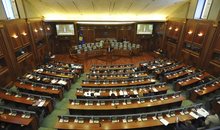
Will the impasse be broken today? MPs vote for the speaker after nine failures
2025-05-03 09:36:43

Tragic in Italy: 14-year-old Albanian girl jumps from window, dies in hospital
2025-05-03 09:03:04

Economic model, Albania is the European champion in construction
2025-05-03 08:49:07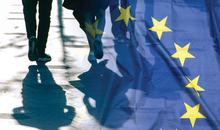


Morning Post/ In 2 lines: What mattered yesterday in Albania
2025-05-03 08:07:46
The outraged immigrant tells Rama: You have become a national danger
2025-05-02 23:04:43
Kosovo opens embassy in Malaysia
2025-05-02 22:21:37



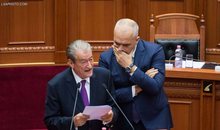

Analysis: Why is EU-Ukraine trade at risk of becoming less free?
2025-05-02 20:54:39


Refused asylum in Italy, 15 migrants sent to Gjadri camp
2025-05-02 20:30:04
Edi Rama's return to the (losing) 2011 campaign
2025-05-02 20:22:18
Moments of panic in Stuttgart/ Car "runs" into crowd of citizens
2025-05-02 20:02:06


Berisha: Rama travels twice as much as the US president
2025-05-02 19:00:58

Phoebe Gates accidentally reveals that Bill Gates has Asperger's syndrome
2025-05-02 18:45:02


US against "birth tourism": Parents who abuse tourist visas risk entry ban
2025-05-02 18:09:59

Elona Lalaj appointed General Director of Tirana Municipal Police
2025-05-02 17:33:39
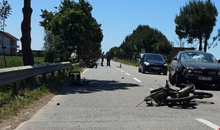


Nallbati challenges SP opponents to a public debate in the center of Devoll
2025-05-02 16:53:26
The US withdraws from peace negotiations between Ukraine and Russia.
2025-05-02 16:42:13
Zodiac signs that always know when you're lying to them
2025-05-02 16:27:17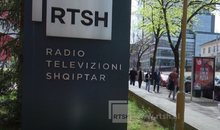
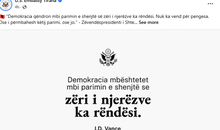

Trump makes changes to his inner circle
2025-05-02 15:56:38
Fire in an apartment on "Tish Daija" street in Tirana
2025-05-02 15:41:27
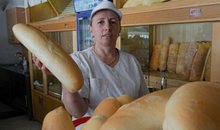
Who can stop the price increase?
2025-05-02 15:08:52


Trump makes changes to his inner circle
2025-05-02 14:34:04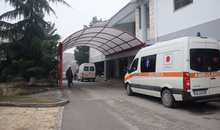
Theft at Korça hospital, nurse and patient robbed
2025-05-02 14:33:14
Hotolisht residents warn Rama-Balluk: Either us or you
2025-05-02 14:21:58
May 11th Elections, US Embassy in Tirana distributes JD Vance's message
2025-05-02 14:07:14
Germany declares AfD party an extremist group
2025-05-02 13:59:52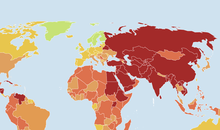


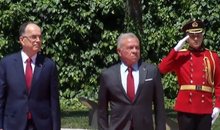
Begaj hosts King Abdullah II of Jordan with a state ceremony
2025-05-02 13:10:20

Italian MP: Vote for a great man like Berisha to change your destiny
2025-05-02 12:53:19
Florenc Çapja extradited from Dubai today
2025-05-02 12:39:21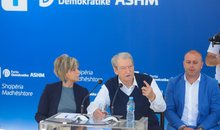
Berisha: Every village will have the infrastructure of city neighborhoods
2025-05-02 12:30:53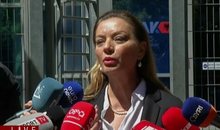


For a month in Albania, the tourist couple appeared happy on social networks.
2025-05-02 12:04:09
Bozdo meeting with farmers in Dimal: DP commits to real support for agriculture
2025-05-02 11:53:43
Diaspora for a Free Albania reports Belinda Balluku to SPAK
2025-05-02 11:41:15
British Lord Supports DP in Elections: It's Time for Change in Albania
2025-05-02 11:32:48

Anti-drug operation in Belgium, Italian-Albanian gang destroyed
2025-05-02 11:10:36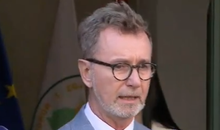
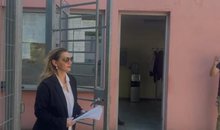

Murder in Shkodra, tourist stabs wife to death, shoots himself
2025-05-02 10:33:08
Compulsory insurance: Risk premiums between companies vary by up to 82%
2025-05-02 10:21:22
The DP electoral office in Cërrik is robbed
2025-05-02 10:11:07

Under investigation in Erion Veliaj's file, Ajola Xoxa appears before SPAK
2025-05-02 09:49:42
Hostage-taking and extortion, two young men extradited from Germany and Italy
2025-05-02 09:42:58
Reporters Without Borders: Deterioration of media freedom in Kosovo
2025-05-02 09:29:40
The DP headquarters in Cërrik was robbed during the night
2025-05-02 09:12:45

Olive oil remains in stock again, exports drop 75% for the period January-March
2025-05-02 08:49:08
Foreign exchange, the rate at which foreign currencies are sold and bought
2025-05-02 08:41:51
Early signs of dementia in young people in their thirties that are often ignored
2025-05-02 08:37:46

Horoscope, what do the stars have in store for you today?
2025-05-02 08:17:26
High temperatures, thermometer marks 31 degrees Celsius
2025-05-02 08:04:18
Posta e mëngjesit/ Me 2 rreshta: Çfarë pati rëndësi dje në Shqipëri
2025-05-02 07:49:13

DP candidate: Patronage agents follow us in cars during electoral meetings
2025-05-01 22:40:28



Forza Italia MP: Only Sali Berisha as Prime Minister can lead Albania to Europe
2025-05-01 21:29:47

For those who were scared by Tomorr Alizoti
2025-05-01 21:05:21
Berisha challenges Rama: You promised free healthcare, come here and keep it!
2025-05-01 20:56:58



The six best foods against stomach bloating
2025-05-01 20:04:09
